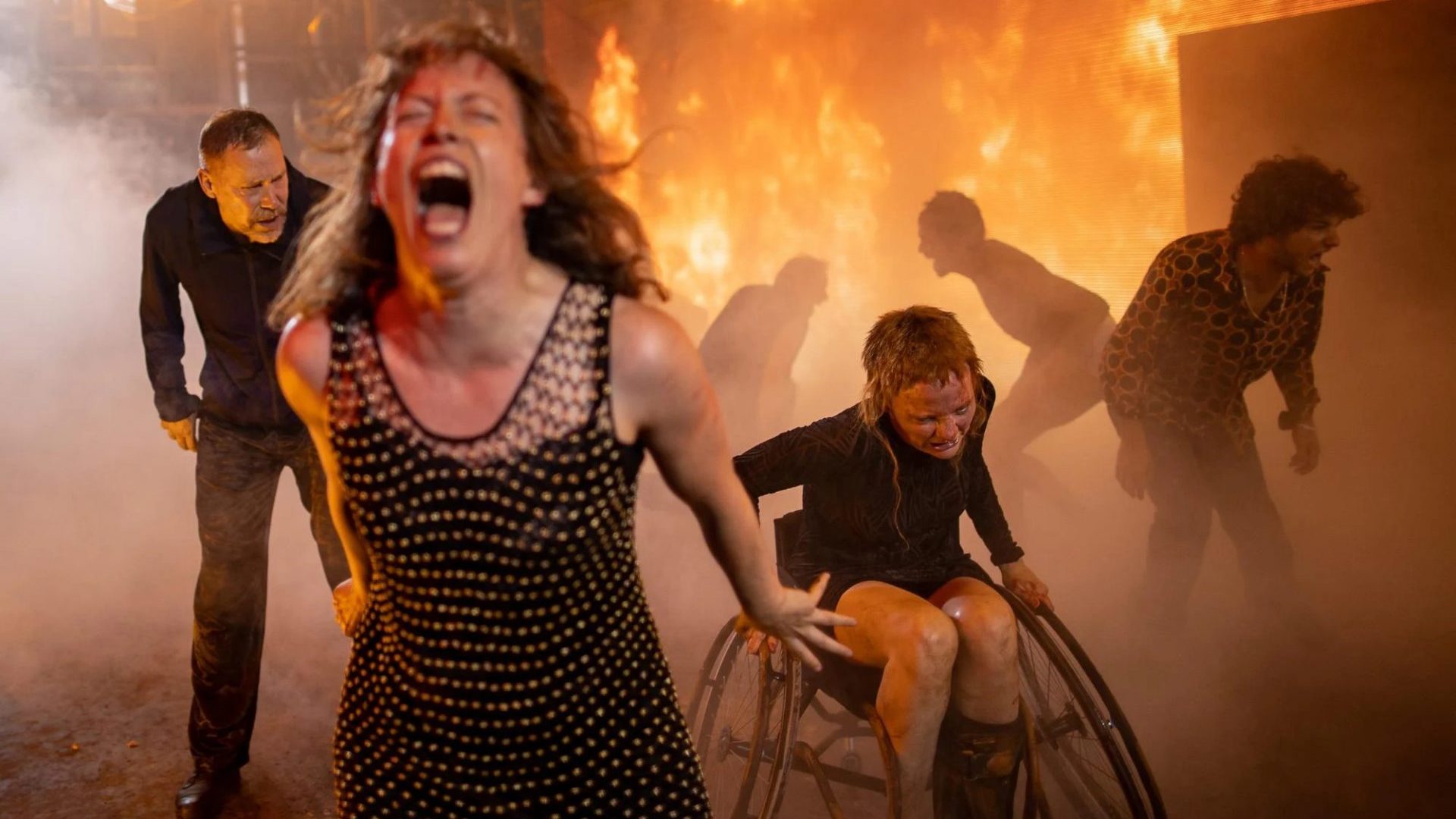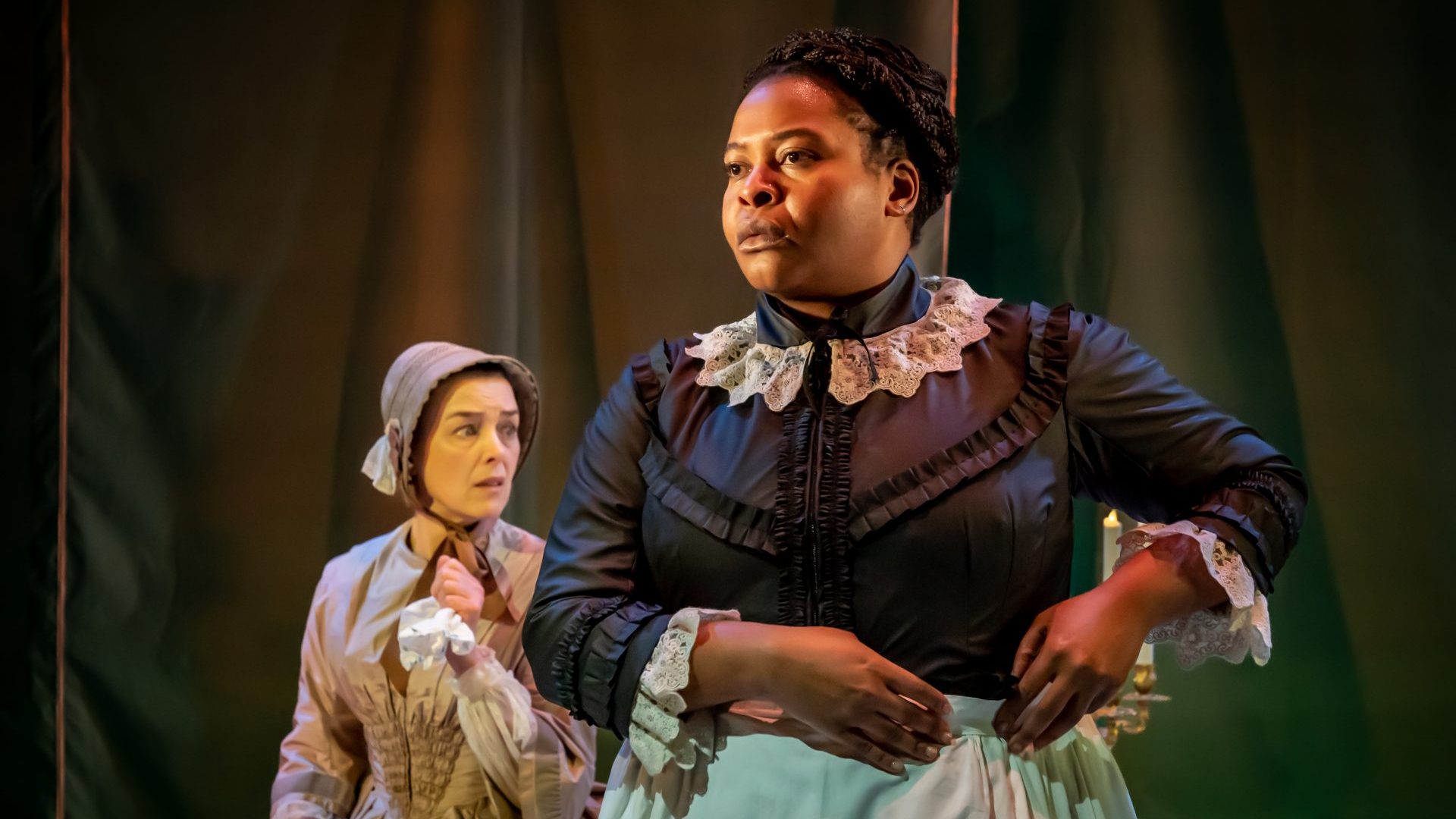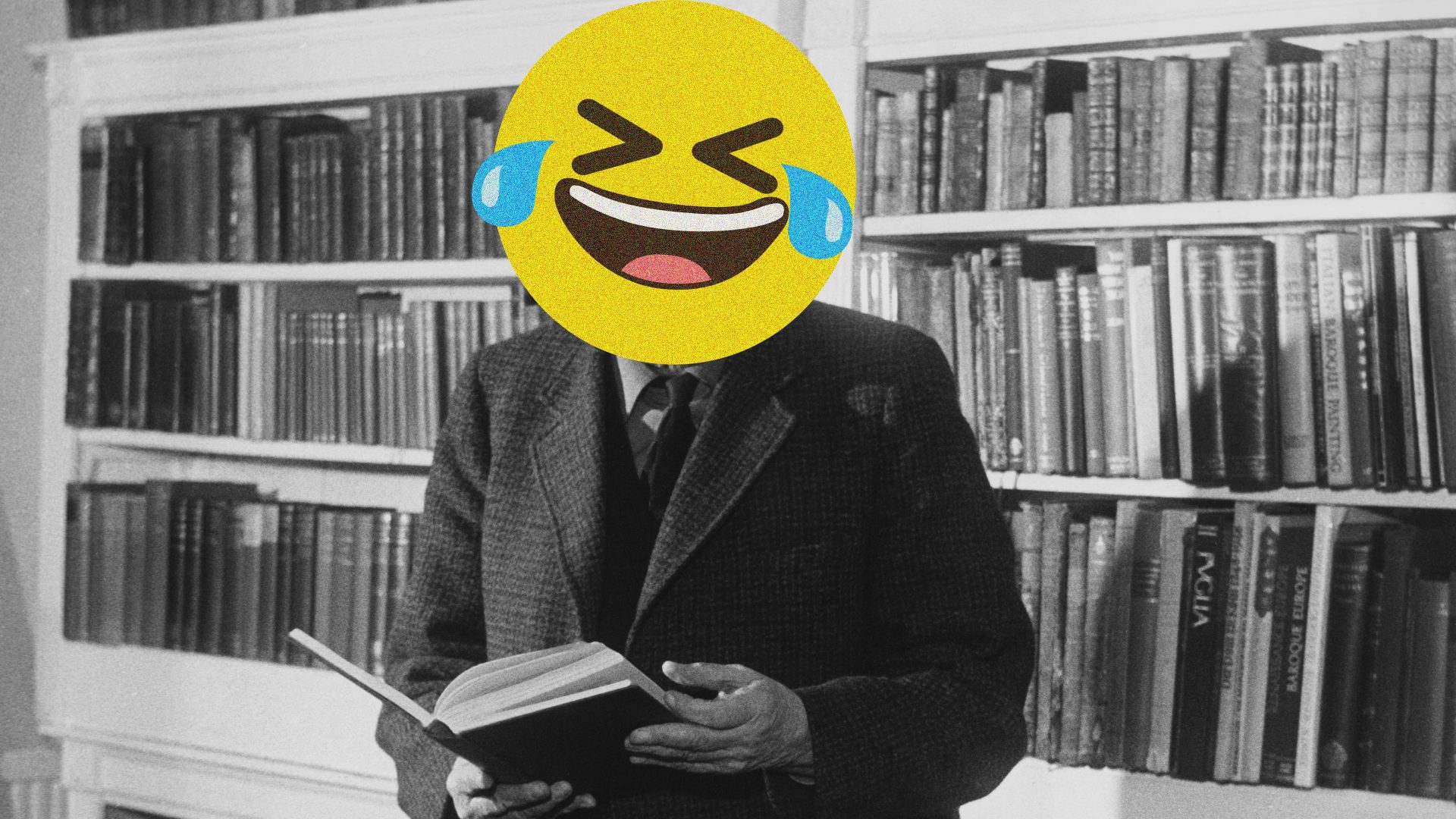There’s an unwritten rule of interviewing that you should always ask the unexpected. And when your subject is Belgian theatre director Ivo van Hove, there are a lot of places your first question could go – his spectacular set concepts, his award-winning work with Bryan Cranston, his collaborations with Ruth Wilson and Gillian Anderson, his upcoming stage adaptation of Stephen King’s The Shining, with Ben Stiller as Jack Torrance – the role played by Jack Nicholson in Stanley Kubrick’s 1980 movie version.
But no. Since van Hove spent two years working on the musical Lazarus, one of David Bowie’s final projects – the singer made his last public appearance at the show’s premiere on December 7, 2015, joining hands with van Hove on stage to take a standing ovation at the end, just five weeks before his death – you’re going to wince and ask the obvious.
“What was it like to work with David Bowie? What do you think? GREAT!”, he enthuses. “He was a real collaborator, a man with a heart of gold, never using the obvious power he could use, always searching for what is artistically best. I miss him and his inspiration and his heavenly or hellish music.”
Born in Belgium in 1958, and now based in Amsterdam, van Hove continues to create heavenly and hellish work on stage. His 2015 version of Arthur Miller’s A View From the Bridge earned him Olivier and Tony awards. Cranston picked up the best lead actor Tony award for his role in van Hove’s production of Network in 2019, the same year he directed Anderson in All About Eve.
He worked with Jude Law for the 2017 stage version of Visconti’s film Obsession, and has directed Wilson twice – first in Hedda Gabler in 2016, and again for this year’s production of Jean Cocteau’s The Human Voice.
Van Hove’s directorial style is intense, conceptual and demanding. In his book Ivo van Hove Onstage, David Willinger says the director creates characters who are “eating themselves up with unrequited love”. His hero is the late French theatre, opera and film director Patrice Chéreau, who gained notoriety for depictions of unsimulated sex in his 2001 film Intimacy. Nevertheless, The Spectator’s theatre critic, Lloyd Evans, has called van Hove “the world’s most boring director”.
In 2001 van Hove was appointed director of the Netherlands’ largest theatre company, Internationaal Theater Amsterdam (ITA), and the company remains central to his output. Rather than working from new scripts, van Hove’s theatrical choices are canonical and adaptive. For ITA’s 2015 production Kings of War, for example, he slammed together Shakespeare’s Henry V, Henry VI and Richard III plays into a single, gruelling tale of the responsibilities of leadership and the unease of sovereignty. And ITA’s most recent addition to their repertoire, Age of Rage, has a format and an ideology
that’s directly traceable to Kings of War, with van Hove this time using the
bones of Greek tragedies written by Euripides and Aeschylus – Iphigenia in Aulis, The Trojan Women, Hecuba, Agamemnon, Electra and Orestes – to construct a piece of theatre that’s predicated on themes of mistrust, deception and violent retribution.
“A dark, grand and universal story,” is how van Hove describes Age of Rage. “It’s the story of years of war and how its consequences as an ineradicable
cancer have a profound and long-lasting effect on families and society. But it’s also a story about violence today and about radicalisation. We see how, faced with major problems, leaders turn to murder and revenge rather than deliberation.” I suggest that, since the onslaught of atrocities in Ukraine, any production that deals with war right now seems prescient. “With a war going on only a few hours away, Age of Rage will have a specific effect on the audiences,” he says.
“But I had the idea for this production already in 2019. When I made Kings of War in 2015, Trump was not around as a potential candidate for the presidency, but when we played the production in 2016 during election weekend in New York everybody saw, in Richard III, Donald Trump.” Not the first time – and certainly not the last – that Trump has been seen as a Richard III.
Van Hove calls his productions “masked autobiographies”; narratives that hint at how he feels. What scares him, as well as what he’s hoping for. They are, he says, also about “utopia, lost paradises”. He pinpoints the impurities of dictatorship and injustice, using his work to present his own political thoughts and indignations. I ask him what went through his mind when he heard that the UK was going to leave the European Union. “To be honest, I couldn’t believe that it was really happening,” he says. “I couldn’t believe that such a country as the UK was – and is – letting itself be fooled by clearly demagogic – even false – arguments. I am convinced that if there would be another vote, the UK would massively vote for a NO Brexit.”
While there are plenty of international companies and directors making visceral, wrong-footing theatre, van Hove’s output is a different kind of infernal machine, with his elemental, sensory assaults managing to avoid grotesquery by the use of ice-cool framing. This is thanks, in part, to the ingenuity of van Hove’s partner, Jan Versweyveld, whose lighting design, sets and staging plans provide a solid basis for van Hove’s philosophical manifestations and flirtations with excess. For van Hove’s 2020 production of West Side Story the cast moved in front of giant video screens, drenched in onstage rain. When van Hove directed The Crucible in 2015, Versweyveld’s set was a fluorescently-lit classroom, complete with an enormous blackboard
scrawled with ominous aphorisms. For van Hove’s 2014 adaptation of Ingmar Bergman’s Scenes From a Marriage TV series, Versweyveld divided the auditorium into three sections, with the audience turning to face each third as the play’s action rotated around them.
When Ivo van Hove staged his production of Eugene O’Neill’s play Desire Under the Elms in the mid-90s, the cast included eight live cows. The audience for his take on the John Cassavetes film Faces watched the play from a row of beds. A car engine dangled above the stage for Obsession, occasionally discharging motor oil over the performers. Versweyveld’s spaces provide outlines for this kind of restless, enticing theatre, affording van Hove the chance to create work in the tradition of the European metaphoric art made by the likes of Joseph Beuys, Pina Bausch and Antoni Tàpies.
Like Beuys et al, van Hove uses symbols and gestures as devices to tell a story within a story. Water is as unforgiving as it is cleansing. Dancing can be threatening and ceremonial. The filth of lucre can be seen in the soil of the ground. The New York Times’ theatre critic, Ben Brantley, called van Hove a “maximalist minimalist”. I wonder if the director believes that’s a fair comment. “Spot on,” he says. “And Age of Rage is a good example of it. I wanted to make Greek tragedy as theatre driven by action, not reflection. I wanted to make theatre that was deeply connected in the ritualistic elements of music and dance.”
Sequences of Age of Rage play out in a pit of mud. Performers stomp and wrestle in the mire, amid belching smoke and pyrotechnical flames. Versweyveld’s red backdrop grid crackles with distorted found-video footage and blinding blocks of light. Music is played live on stage by noisy art-rockers Bl!ndman. There’s a lot of blood. Bowie would have loved it.
The Internationaal Theater Amsterdam are touring Europe throughout 2022. Age of Rage is at the Barbican theatre in London from May 5-8



